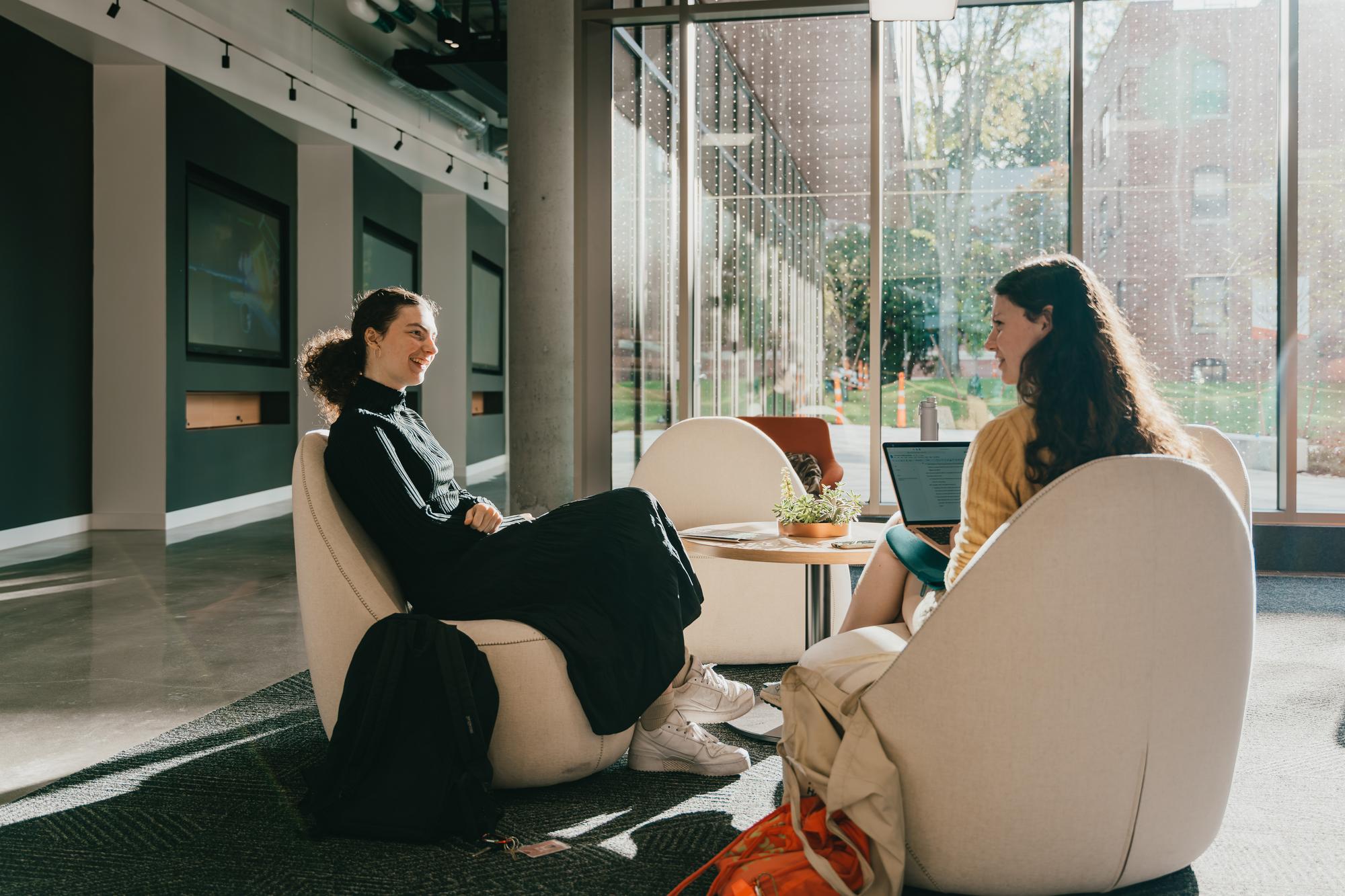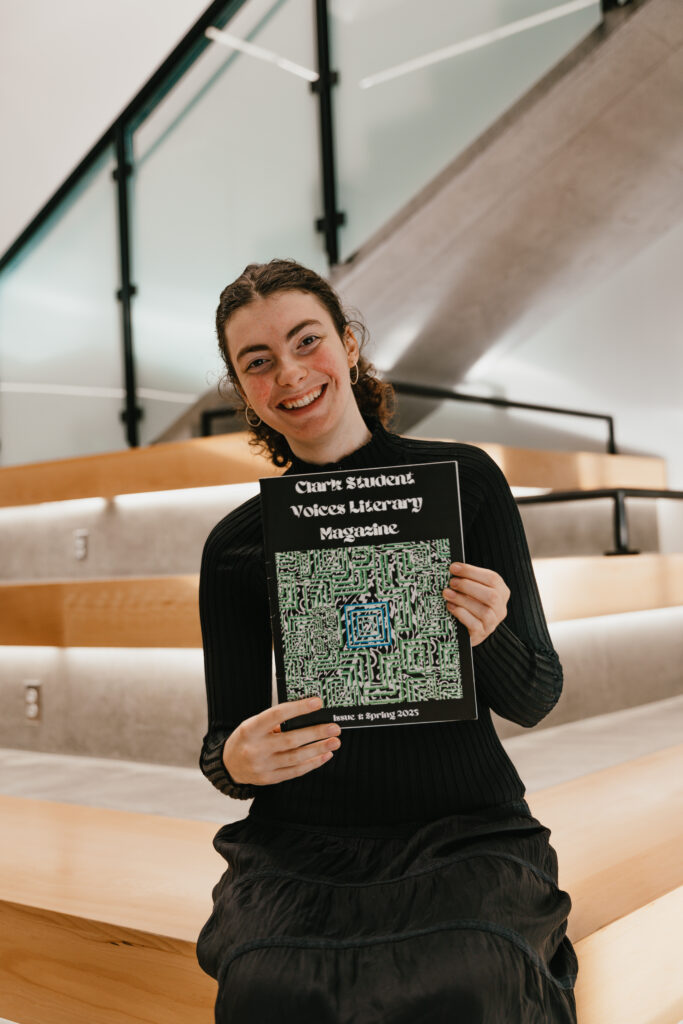‘Poetry makes people feel less alone’

For English major Ian Quinn ’26, the importance of poetry lies in the act of writing as a means of expression. He does that with the help of fellow Clark poets, who have encouraged him to develop his writing style and identify the themes and topics that he wants to feature prominently in his verse.
Quinn is among a passionate community of student poets who quietly write and rewrite for campus publications — or their own pleasure — and motivate one another to improve their craft. New avenues in which these writers can refine and share their artistry have emerged in the last year. The University’s new creative writing major teaches students how to analyze the works of great writers and provide their peers with constructive feedback on class assignments. The Clark Student Voices Literary Magazine, a semesterly publication curated by Clarkies and open to all forms of student writing, launched in spring 2023 and has become a prime showcase for student poetry as well as a forum for building a literary community.
Abby Smith ’25, an English and art history major and the editor of the first issue of the magazine, describes a growing poetry scene on campus that feels more accessible and personal when students are sharing their original writing. “It’s so much different when you’re reading poetry that you know has been written by your peers versus having to read Walt Whitman or someone else that you can’t relate to,” Smith says. “Poetry makes people feel less alone and more heard and understood. When a piece is published, it’s also a message that the writer is accepted.”

Kate Roller ’25, president of Clark Student Voices Literary Magazine, hopes this literary effort will prevent writers from feeling isolated and ensure that poetry, as well as prose, is produced and shared outside of classroom assignments and workshops.
“When I was in a creative writing class, I still felt disconnected from the Clark writing community,” she says. That experience helped Roller realize the need for a space to pursue writing outside of an academic setting. She hopes the club can spark more creative writing projects among her peers.
“Writing can help with everything,” says Roller, who hopes the club can spark more creative writing projects among her peers.
Phil Lemos, an English professor and faculty sponsor for the literary magazine, uses his First-Year Seminarcourse, Burn Away All Peripherals, to guide students on strategies to unpack the rhythm, image, voice, and dialogue of poems, short stories, and creative nonfiction. The course title is a nod to a famous Sylvia Plath quote, “Poetry, I feel, is a tyrannical discipline. You’ve got to go so far, so fast in such a small space. You’ve got to burn away all the peripherals.”
“I can’t say enough good things about the magazine,” Lemos says. “They’ve done great work and have created many connections.”
Clark’s poetry community is shaped by students from all majors and backgrounds. Psychology major Sarah Lucas ’26 says the creative community has “challenged and inspired” her in her writing. Nick Dlugos ’26, a philosophy and English double major, says the culture at Clark has motivated him to articulate and refine his thoughts and experiences through poetry. And environmental science major Cyd Abnet ’24, a poet who also writes for The Scarlet, says that while writing for the student newspaper gives her the opportunity to report on current events, poetry is a place to explore her emotions.
Clark Student Voices Literary Magazine meetings are generally announced via Instagram, and anyone interested in participating is welcome. A variety of committees, readers, and editors, select work for the publication. The magazine can be found in the Anderson House.
In addition to Roller, members of the magazine’s e-board are Kate Galvinhill ’25, vice president; Kai Moore ’26, secretary; and Jonah Kipnis ’26, treasurer.
Abbie Hart recently published her first book of poetry, “head is a home.” It’s available for purchase online.


